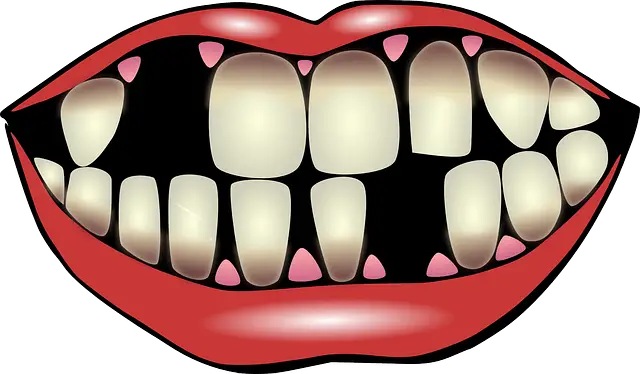You are here looking for the no BS answer to the question: Can You Keep Your Wisdom Teeth?
In some cases, it’s advisable to have your third molars removed to minimize the risk of infection and teeth crowding. Wisdom tooth extraction is a standard surgical procedure to remove these third sets of molars if the mouth has insufficient room to accommodate them and if they erupt askew.
Still, there are some unclear doubts about whether the extraction of wisdom teeth presents more risks to patients than benefits. Therefore, understanding the intricacies of wisdom teeth extraction will go a long way in keeping a healthy denture.
For instance, knowing what to expect when wisdom teeth emerge will help you watch for the signs and know when to consult a dentist. The dentist will be in a better position to advise the appropriate steps.
This post gleans insights on what to expect when wisdom teeth emerge and answer the query can you keep your wisdom teeth.
Can You Keep Your Wisdom Teeth?
Wisdom teeth are third molars that develop in your tenancy between the age of 18 and 25 years. Now, whether you can keep them or not depends on several factors.
If wisdom teeth are not troubling you and comfortable with them, you can certainly keep them. However, the following factors determine if you can keep your wisdom teeth.
- Jaw Size: A bigger upper and lower jaw can comfortably accommodate extra wisdom teeth. So, if you have a bigger jaw, then it’s a good indicator for you if you want to keep your wisdom teeth.
- Fully Developed Wisdom Teeth: Undeveloped wisdom teeth with small size and loose roots will not contribute to chewing and may shed off. Fully developed wisdom teeth significantly contribute to chewing, and you can keep them.
- Easy Cleaning: This is most crucial when it comes to oral hygiene and health. You can keep your wisdom teeth if you find them comfortable to clean. In case you cannot clean them quickly, they will allow bacterial growth, cavities, and gum diseases.
- Risk of Cavities: If you are more vulnerable to cavities, then it is advised not to keep your wisdom teeth. You should not keep them even if you find it easy to clean them. It is certain that they will give place for bacterial growth and will cause cavities. The same thing applies if you are more vulnerable to gum diseases like pericoronitis.
Symptoms of Wisdom Teeth
Most people develop wisdom teeth in their teens between the age of 17 to 25 years. Following are the signs to mark the development of wisdom teeth:
- Pain– The development of wisdom teeth can be marked by pain in your jaw and mouth. The severity of the pain varies for different people depending upon how much gap or space your mouth has to develop wisdom teeth.
- Loss Teeth: You might feel a situation of loose teeth. This happens when there is not enough space for wisdom teeth to grow, which leads to the shifting of your teeth. As a result, you may find it difficult and painful to eat certain foods.
- Inflammation: You might complain of a sensation of inflammation in gums and swelling. This may be accompanied by pain, but this is not always true.
Learn more about wisdom tooth extraction: How to Get Rid of Numbness After Wisdom Teeth Removal?
Best Time To Get Your Wisdom Teeth Removed
Consult your doctor if you find any pain or discomfort because of your wisdom teeth. Your doctor will find out the possible reason, and if required, he will go with wisdom teeth removal.
You should note that it is good to get your wisdom teeth removed at an early stage. The reason is, at the early stages of their growth, they have loose roots and can be easily removed. Doing this will not cause much harm to the surrounding nerves. However, you can get them removed at any stage of their growth and any age.
Summary
Can you keep your wisdom teeth? Yes, in some cases, you can keep your wisdom teeth, but it depends on the reports of a digital X-ray and a detailed examination of your mouth. However, if you feel comfortable and your doctor tells you that your wisdom teeth are safe for you, you can surely keep them.
Frequently Asked Questions
What Happens If Wisdom Teeth Are Not Removed?
If you choose not to get your wisdom teeth removed, you might cause problems like a bacterial infection, pain, and damage to gum and jaw tissues. However, in some cases, you can keep your wisdom teeth, but it requires some prerequisites. Consult your dentist or surgeon to know if you can keep your wisdom teeth.
How Painful Is Wisdom Teeth Removal?
Because of numbness, you will not feel any pain during wisdom teeth removal. Your dentist can give you anesthesia to make the process comfortable and painless. Do inform your doctor or dentist if you feel any pain during the process of removal.
What Happens If You Wait Too Long To Get Wisdom Teeth Out?
Waiting too long to get wisdom teeth out may lead to a disturbance in the alignment of your teeth or pain in your out and face. This can also cause an ache in your tooth. It will be easy for your doctor to extract out wisdom teeth at an early stage.
What Problems Can Occur After Wisdom Tooth Extraction?
Akin to any other surgical procedure, wisdom tooth extraction might have some risks and complications. In most cases, it depends on an individual’s teeth anatomy. However, the problems that might arise after wisdom teeth extraction include pain, swelling, and numbness. Moreover, failure to adhere to the dentist’s aftercare guidelines properly can result in dry socks, bacteria infections, and subperiosteal abscess.

